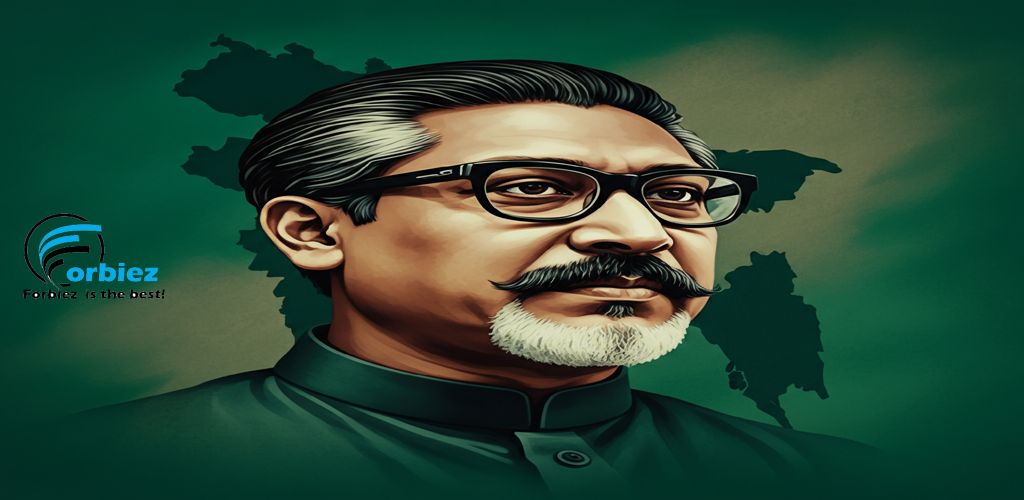Sheikh Mujibur Rahman, often called the “Father of the Nation” in Bangladesh, remains one of the most significant and polarizing figures in the country’s history. Nearly 50 years after his assassination on August 15, 1975, his legacy continues to evoke varied reactions from different corners of Bangladeshi society and beyond. His role in the creation of Bangladesh is undeniable, yet debates around his leadership, policies, and downfall keep his name at the center of national discourse.
This article explores the reasons why Sheikh Mujibur Rahman remains a controversial figure in Bangladesh even half a century after his tragic death.
Who Was Sheikh Mujibur Rahman?
Sheikh Mujibur Rahman was the founding leader of Bangladesh, a man whose vision and charisma unified the Bengali-speaking population in their struggle against West Pakistan. Born on March 17, 1920, in Tungipara (then part of British India), he quickly became involved in politics, rising to prominence as a defender of Bengali rights. His role in leading the movement for an independent Bangladesh earned him immense admiration, but his tenure as the head of the state has been the subject of much scrutiny.
A Quick Look at His Role in Bangladesh’s Independence
Mujibur Rahman spearheaded the Bengali nationalist movement that culminated in the liberation war of 1971. His landmark speech on March 7, 1971, is etched into history as a rallying cry for independence. Acting as the leader of the Awami League, he negotiated tirelessly for autonomy, but when talks with West Pakistan failed, the situation escalated into a full-blown war. With support from India, Bangladesh was born on December 16, 1971.
Why Is Sheikh Mujibur Rahman Called the Father of the Nation?
Mujibur Rahman’s unwavering commitment to the Bengali people’s cause earned him the title of “Bangabandhu” (Friend of Bengal). His leadership during the country’s most defining moments, including the struggles leading to independence, demonstrated his dedication to improving the lives of his fellow citizens. Many continue to regard his contributions as the foundation upon which modern Bangladesh was built.
The Early Political Career of Mujibur Rahman
Mujibur Rahman cut his teeth in politics as a young student leader opposing British colonial rule. His early activism revolved around advocating for Bengali language rights—a cause that laid the groundwork for his later political career. By the late 1940s and early 1950s, he had firmly positioned himself as a vocal opponent of West Pakistan’s dominance over East Pakistan.
Did Sheikh Mujibur Rahman’s Leadership Favor Bengali Nationalism?
Yes, his leadership significantly emphasized Bengali culture, language, and identity. Mujibur Rahman believed that East Pakistan’s economic exploitation and lack of recognition for its cultural identity were central issues. Through the Six-Point Movement, he demanded greater autonomy, which many saw as a decisive step toward sovereignty.
Post-Independence Challenges in Bangladesh
After achieving independence, Mujibur Rahman faced enormous challenges, such as rebuilding a war-torn nation, addressing poverty, and establishing governance. However, critics argue that his government struggled to live up to these expectations, as Bangladesh continued to grapple with corruption, food shortages, and inefficiency.
Policies That Shaped Mujibur Rahman’s Legacy
Some of Mujibur Rahman’s policies polarized public opinion, including:
- Establishing close ties with India, which some viewed as compromising economic independence
- Prioritizing socialism in an attempt to address inequality
- Nationalizing industries, which critics argue stifled growth
While these policies were meant to help the country recover, they sparked sharp debates that continue to this day.
Why the BAKSAL Policy Sparks Debates
One of the most controversial decisions of Mujibur Rahman’s leadership was the introduction of the Bangladesh Krishak Sramik Awami League (BAKSAL) in 1975. This effectively turned Bangladesh into a one-party state, banning opposition parties. Supporters claim he made this move to unite the fractured nation, but opponents viewed it as authoritarian.
The Question of Accountability During His Governance
During Mujibur Rahman’s time in power, allegations of corruption and nepotism ran rife. Detractors argue that his government failed to ensure transparency, while supporters counter that he inherited a nation in disarray, making these issues inevitable.
His Relationship with Other Political Factions
His leadership alienated some political leaders and factions, mainly those aligned with West Pakistan or opposing his vision of a socialist Bangladesh. This political rivalry contributed to the unrest that eventually led to his assassination.
The Tragic Assassination of Mujibur Rahman
On August 15, 1975, Mujibur Rahman and most of his immediate family were assassinated in a military coup. This event shocked the nation and overturned the political landscape. The coup’s leaders justified their actions by citing grievances over his governance, further fueling debates around his legacy.
How His Death Impacted Bangladesh’s Political Landscape
The assassination set off a prolonged period of political instability. Successive governments sought to downplay his contributions, but over time, his legacy has been reassessed and revived, particularly after his daughter Sheikh Hasina rose to power.
Why Does Sheikh Mujibur Rahman’s Leadership Divide Opinion Today?
The central reasons why Sheikh Mujibur Rahman remains a controversial figure include:
- The contradictions between his democratic vision and authoritarian policies
- The economic challenges during his governance
- Multiple interpretations of his leadership style, including both praise and criticism
Key Takeaways from Sheikh Mujibur Rahman’s Life
- Mujibur Rahman was integral to Bangladesh’s independence but faced immense challenges post-liberation.
- Policies like BAKSAL and nationalization remain highly debated.
- His assassination marked a critical turning point in Bangladesh’s political history.
FAQs About Sheikh Mujibur Rahman
What role did Sheikh Mujibur Rahman play in Bangladesh’s independence?
He was the leading figure in the Bengali nationalist movement and spearheaded the quest for autonomy, which ultimately led to the creation of Bangladesh.
Why was Sheikh Mujibur Rahman assassinated?
He was assassinated due to dissatisfaction with his governance and policies, coupled with political conspiracies.
What was BAKSAL, and why was it controversial?
BAKSAL was a one-party system introduced by Mujibur Rahman in 1975. While designed to unify the nation, it was criticized for suppressing political opposition.
Who are some other prominent figures in Bangladeshi history?
Figures like Ziaur Rahman, Khaleda Zia, and Sheikh Hasina have also played significant roles, shaping the nation’s political trajectory.
For more insightful articles on world leaders and global history, check out the forbiez.co.uk




